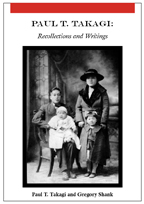Description
Class, Crime, and Film Noir: Labor, the Fugitive Outsider, and the Anti-Authoritarian Tradition
Author Dennis Broe looks at how this genre has reflected an American anti-authoritarian tradition and has changed in tandem with the relative power of organized labor vis-à-vis the corporate state. In these films, the sympathetic fugitive’s journey outside the law paralleled that of labor in the postwar period, when unions and wildcat strikers were criminalized first in a massive strike wave and later as victims of legislation (the Taft-Hartley Act) and governmental investigations (HUAC) that retroactively outlawed their actions. Broe traces how this sympathy for working-class rebellion was systematically rolled back within the crime film, which emerged in the early to mid-1950s at the height of the Cold War and labor’s enlistment in the corporate state. The article examines the influence of September 11 on television programming and the ways in which fugitive outsider has continued to resurface, despite the current remilitarization and one of the most repressive seasons in television history.
Cold War domestic repression; Hollywood; crime and criminals; crime and criminals — television; police procedural; film noir; labor and laboring classes — United States; motion pictures — United States
Citation: Social Justice Vol. 30, No. 1 (2003): 22-41



